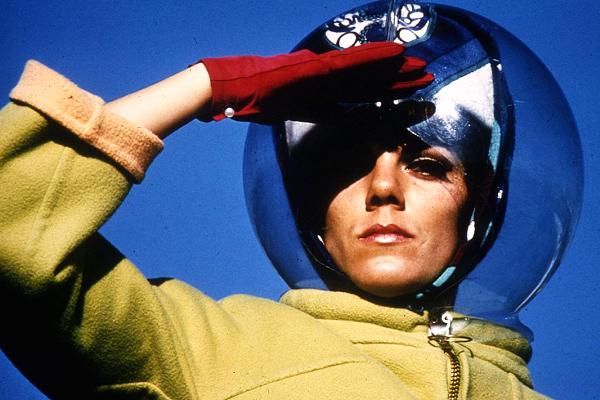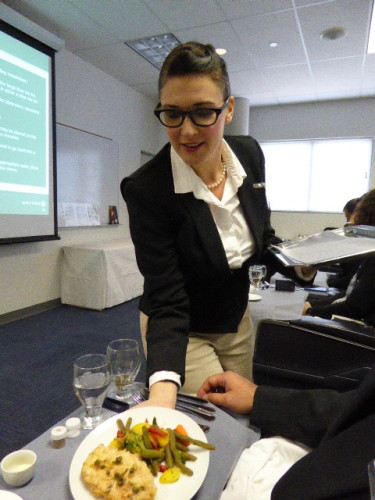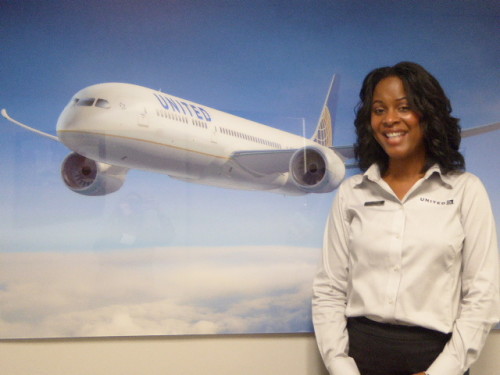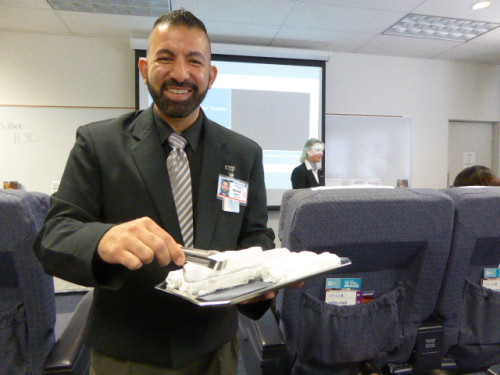During her 17 years as a flight attendant, Heather Poole has not only been pouring sodas and telling passengers to fasten their seatbelts, she’s been taking notes. Copious notes.
Now, in an offbeat memoir, Poole is dishing about flight attendants’ lives in the air and on the ground and the often outrageous behavior of both passengers and other crew members.
Here’s an excerpt from an interview I conducted with Poole for msnbc.com’s Overhead Bin about her new book “Cruising Attitude: Tales of Crashpads, Crew Drama and Crazy Passengers at 35,000 Feet.”


Q: Why did you want to write a book about your time in the sky?
A: Airlines have had so much tight control on their image that people have no idea what the reality is. I wrote the book so people will have a better understanding of the life.
Q: So what made you want the life of a flight attendant?
A: My mother. She’s also the reason I didn’t want to become a flight attendant. Whenever anything would go wrong in my life, she’d always suggest applying to an airline. I didn’t officially decide to become a flight attendant until I didn’t get a raise at the company I worked for. I had seen a “Flight attendant wanted” ad in the paper and decided to go for it. At $14 an hour, I figured, “Why not?” It might be fun, and I could travel and meet new people. Seventeen years later, I’m still flying.
Q: Was that first job difficult to get?
A: The first airline I interviewed with didn’t hire me. It turns out “glamour and free travel passes” is not the correct answer to the question, “Why do you want to become a flight attendant?”
Q: Obviously you did eventually get hired. Is “Barbie Boot Camp” really what flight attendant training is called? And what is it like?
A: It’s not really called Barbie Boot Camp, but that’s our pet term for it. Basically, it’s seven-and-a-half weeks of hell. The only thing I can compare it to is being on “American Idol” during Hollywood Week. It’s not that what we were learning was difficult, but we were under a lot of pressure and completely sleep deprived due to late night study groups and early morning drill tests. When it came to commanding evacuations, we had three shots to get it right. If we did something wrong, an instructor would stop us and ask us to do it again. One small slip, one point in the wrong direction, and it was buh bye, adios, sayonara!
Q: Why did you stick with it after your first job with Sun Jet International [a long-defunct, low-fare, charter airline]?
A: In that chapter, I write about the jump seat falling off the wall during landing, the passenger who followed me into the [airport] bathroom to rip me a new one through the bathroom stall over a flight delay and the passenger who was escorted off the plane in handcuffs but then wound up in a neighboring booth at a local restaurant after the flight. The crazy thing is that’s when I decided I really wanted to be a flight attendant. After experiencing all that, and more, I applied to another airline. I wanted a career, not just a job, with an airline I could be proud of.
Q: You also write about crash pads. What are they and what really happens there?
A: Did you ever see that reality show with the Virgin flight attendants who all shared a million dollar home near the beach in Venice? That was not a crash pad. Most new-hire flight attendants make between $14,000 and $18,000 their first year on the job and junior flight attendants don’t usually get based where they live. So they’ll share an apartment and commute to work. Crash pads usually have bunk beds lining the walls in every room. There are even crash pads that offer “hot beds”: Flight attendants will pack up their pillows and sheets and store them in a tub so that others can use the bed after they leave. Not a lot goes on in a crash pad except sleep and Chinese food takeout parties. Commuters mean business.
Q: What is “jump seat syndrome?”
A: It’s a term I made up. It’s like being a bartender or a hairdresser, the way people confess things to you. I’ll fly with other crewmembers and we’ll go right into personal stories. You get close really quickly and then you may never work with them again. It’s like having all these one-night stands; you get really intimate and then it’s done. It also sometimes happens when we start talking to passengers in the galley.
Q: You share a lot of horror stories about passengers on your flights. Do you have a theory about why people who are “normal” on the ground become trouble in the air?
A: One reason bad behavior stands out on the plane is because we’re unable to multitask the way we do on the ground, so we’re more in tune to what’s going on. If someone bumps into us on the street without apologizing we might curse under our breath, but move on. On the airplane, we sit and stew over it for a four-hour-long flight, and then explode when the kid behind you kicks your seat or the flight attendant tells you they’ve run out of the beverage of your choice.
Q: In your book and on Twitter and other places you write about your work, you don’t name the airline you work for. Why?
A: So I can keep my job. Plus, I’m not writing about my airline. I’m writing about what it’s like to be a flight attendant. It doesn’t really matter which airline we work for, the job is pretty much the same wherever we go.
Q: Are there also topics you cannot or will not talk about?
A: Anything to do with security. I won’t talk about religion or politics with passengers, and I refuse to discuss the electronic device policy any more. The rule is, if it has an on/off switch it has to be off and stowed. It’s always been the rule, but now that people have so many devices you’d think it was a brand new rule.




